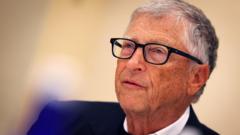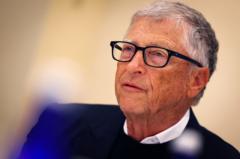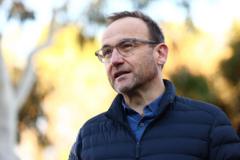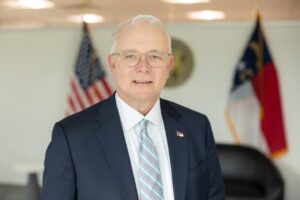Gabon, a small but resource-rich nation, is heading to the polls to elect its next president, breaking away from decades of Bongo family dominance in politics.
Congo's Pivotal Presidential Vote: A New Dawn Post-Coup
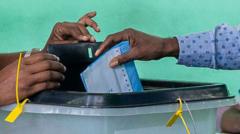
Congo's Pivotal Presidential Vote: A New Dawn Post-Coup
As Gabon votes for its next leader, a dramatic political shift unfolds as Gen Brice Oligui Nguema, coup leader, positions himself for victory.
In a historic election, Gabon is set to elect a new president, marking a turning point for the nation, as it features no Bongo family member on the ballot for the first time in many years. The coup leader, Gen Brice Oligui Nguema, who ousted former President Ali Bongo 19 months ago, is in the running after altering the constitution to enable his candidacy. A total of eight candidates are competing, with Gninga Chaning Zenaba being the only woman in the race. Prominent former figures from the Bongo administration, like ex-Prime Minister Alain Claude Bilie-by-Nze and party veterans, are also contenders.
With nearly one million voters expected to participate, election results will begin emerging on Sunday, but counting may extend into the following week. Gabon has a population of just 2.5 million, and despite its wealth from oil and timber, 35% of its citizens live below the poverty line of $2 a day.
During the campaign, most candidates focused their efforts on reaching voters beyond the capital, Libreville, where support for Oligui Nguema is reportedly significant, illustrated by the overwhelming presence of his campaign posters. Supporters praise him for his proactive governance style, while critics argue he has engineered an electoral process that heavily favors his own run.
The implementation of new constitutional provisions, including an age limit making opposition rival Albert Ondo Ossa ineligible, has drawn backlash. Bilie-by-Nze, widely seen as the top contender against Oligui Nguema, has called for a return to civilian governance, criticizing the lack of progressiveness within the transitional regime.
Expectations from the Gabonese populace are high; many desperately seek an end to the entrenched corruption and economic hardship they have faced for years. Voters like pharmacist Shonnys Akoulatele hope the next president prioritizes job creation, stressing the need for compassion towards a severely underemployed population.
Polls are set to close at 18:00 local time on Saturday, with the hopes of many resting on the outcome of this pivotal election.
With nearly one million voters expected to participate, election results will begin emerging on Sunday, but counting may extend into the following week. Gabon has a population of just 2.5 million, and despite its wealth from oil and timber, 35% of its citizens live below the poverty line of $2 a day.
During the campaign, most candidates focused their efforts on reaching voters beyond the capital, Libreville, where support for Oligui Nguema is reportedly significant, illustrated by the overwhelming presence of his campaign posters. Supporters praise him for his proactive governance style, while critics argue he has engineered an electoral process that heavily favors his own run.
The implementation of new constitutional provisions, including an age limit making opposition rival Albert Ondo Ossa ineligible, has drawn backlash. Bilie-by-Nze, widely seen as the top contender against Oligui Nguema, has called for a return to civilian governance, criticizing the lack of progressiveness within the transitional regime.
Expectations from the Gabonese populace are high; many desperately seek an end to the entrenched corruption and economic hardship they have faced for years. Voters like pharmacist Shonnys Akoulatele hope the next president prioritizes job creation, stressing the need for compassion towards a severely underemployed population.
Polls are set to close at 18:00 local time on Saturday, with the hopes of many resting on the outcome of this pivotal election.





